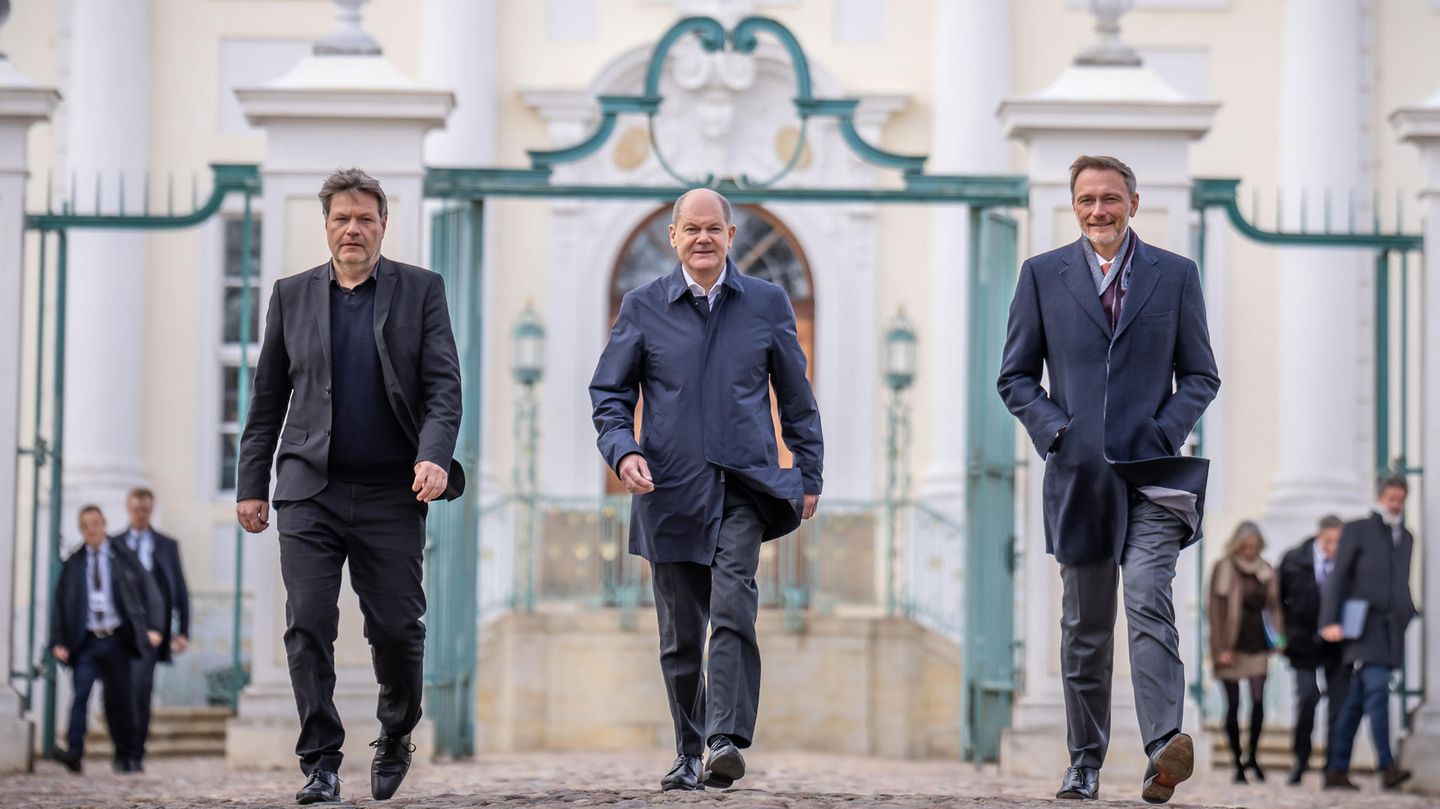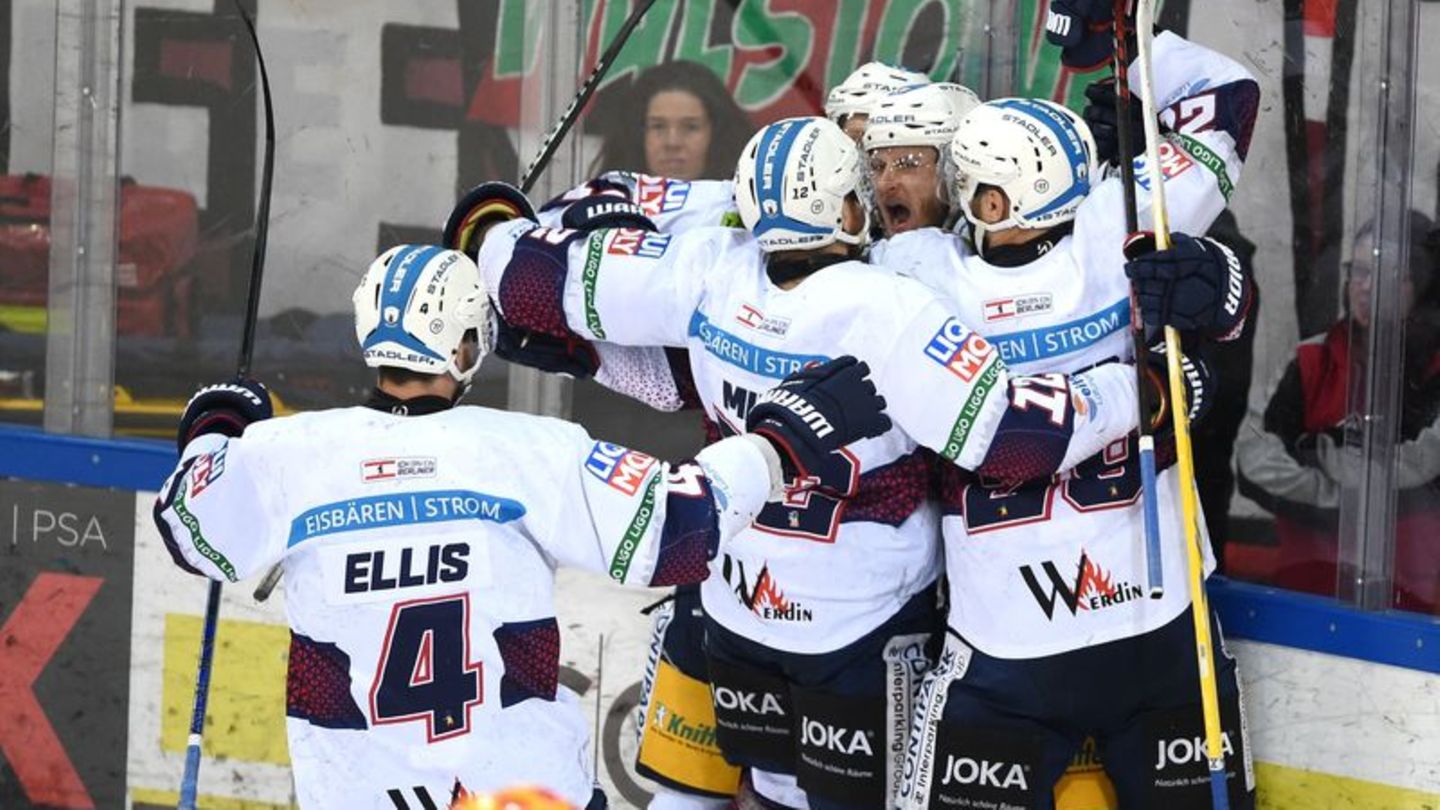Opinion
The chancellor sees a bright future for Germany. In Meseberg, he studiously ignores the quarrelsome state of his coalition. After all, a minister comes to his senses in the guest house of the federal government
The Chancellor now says “Robert and Christian”. As always, Olaf Scholz brought the two most important ministers of his coalition partners to the press conference in Meseberg. If he now publicly calls Vice Chancellor Habeck and Finance Minister Lindner by their first names, it is probably not without reason. The chancellor wants to convey familiarity; he wants to give the impression that they have become even closer. The cuddle course is program. The government needs it.
Scholz is supported by two ministers in Meseberg, who didn’t mind writing aggressively smug letters to each other, the addressee of which was not the other minister, but the public. This exchange of letters has become a symbol of how the FDP and the Greens in particular consume each other in petty tussles.
Habeck: “We depend on each other”
It is Robert Habeck who now says with humility that the seclusion of the enclosure helped to recognize “how much we depend on each other”, what a privilege it is to belong to the government and that one has an obligation to the country. This government needs two days of seclusion to become aware of such things that are taken for granted?
In this coalition, the chancellor presents himself as a man who stands above such obstacles. Confidence is “required,” he says after the cabinet meeting in Meseberg. Confidence is therefore no longer a feeling, no recommendation, it is now an expectation from the very top, not to say an order. To his ministers, but also to the rest of the Germans. Olaf Scholz likes to work with appeals to the citizens, most recently he had asked them in Ukraine politics: “Trust me.”
Scholz’ self-confidence does not suffer from the fact that the public’s trust in him and his government has so far only been moderate. That spurs him on. Even Angela Merkel, after almost eight years in office, dared to personalize trust in a government in this way by saying “You know me”. And that was during the election campaign. Scholz dares to do that after little more than a year.
According to the Chancellor, confidence should be created by setting ambitious goals and being convinced that they can be achieved. There is no doubt about his abilities in autosuggestive motivation. Ever since he was laughed at by everyone when he set himself the ambitious goal of becoming chancellor and actually made it in the end, his confidence has been unshakable. Sometimes you could almost be jealous.
Scholz draws optimistic pictures
But now it’s not just about him, it’s about the whole thing. The picture that Scholz promises of Germany, if you just “shoulder the challenges,” as he likes to put it, is a very optimistic picture. Unemployment – in a few years past. The transformation of energy supply – accomplished in just 22 years. Artificial intelligence – a feature of the future industrial location Germany. The chancellor thinks in very long lines. His long-distance goggles have pink lenses. But does the state of the coalition allow that in the short term?
Of course, a coalition is only human. And it’s good that this government occasionally looks beyond day-to-day business. But that doesn’t absolve them of their duty to master this day-to-day business with decency – both on the subject and in dealing with it. Too many problems are too present for that.
There is said to have been a snowball fight in the fresh snow from Meseberg. When the chancellor is asked if he participated, Scholz replies that he threw a snowball but didn’t aim it at anyone. That’s how it should be for a Chancellor. That may be the case in Meseberg. In political Berlin, this reticence on the part of the head of government will be difficult to maintain.
Source: Stern
I have been working in the news industry for over 6 years, first as a reporter and now as an editor. I have covered politics extensively, and my work has appeared in major newspapers and online news outlets around the world. In addition to my writing, I also contribute regularly to 24 Hours World.




